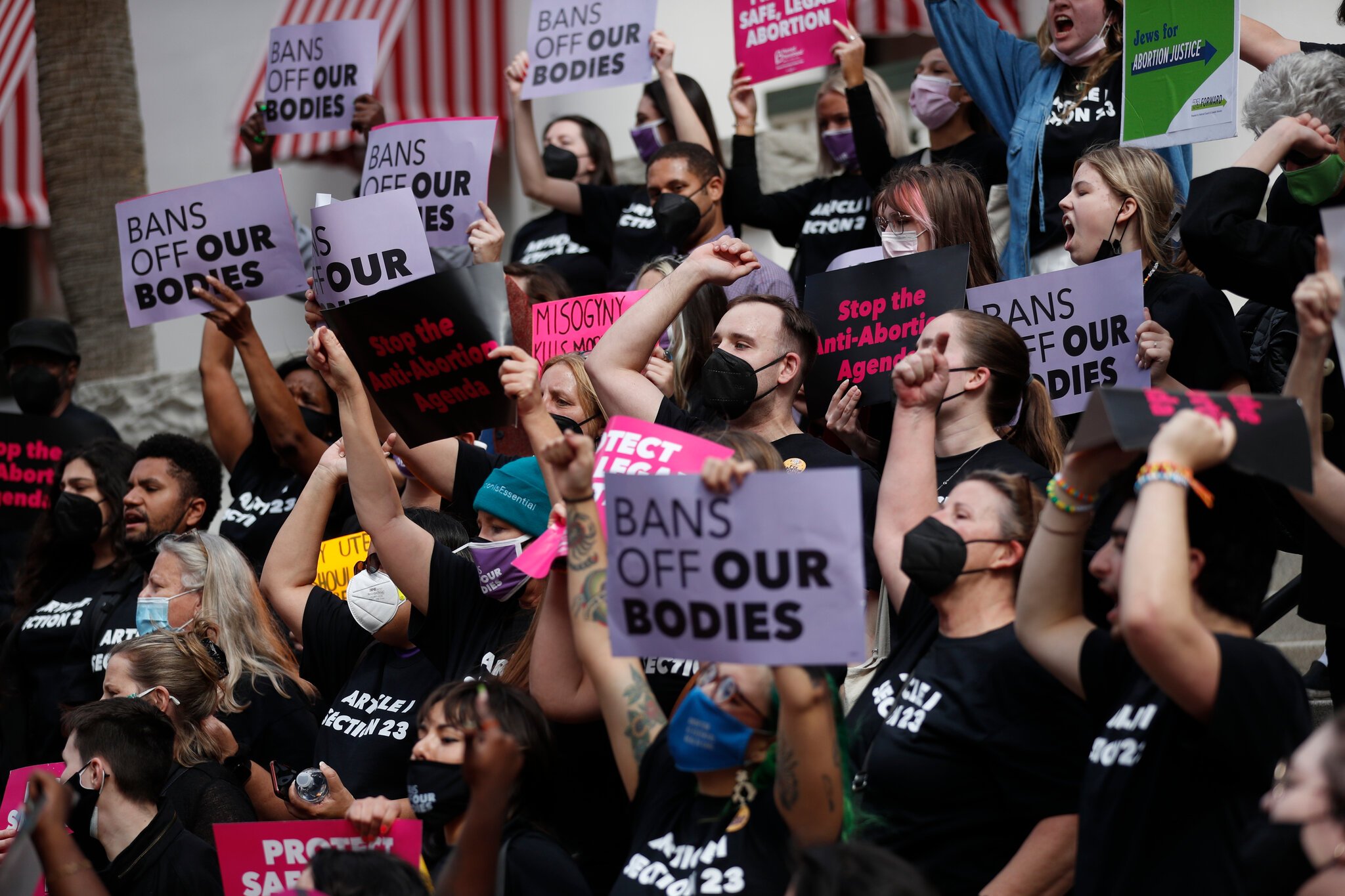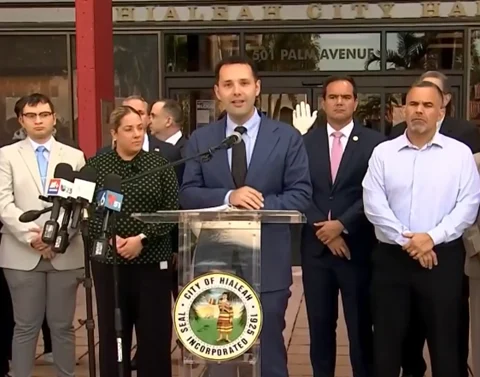Florida Governor Ron DeSantis signed into law Thursday a law prohibiting abortion during the first 15 weeks of pregnancy, and does not include rape or incest, as in most countries.
The governor joined a growing conservative push to restrict access to the procedure in the face of a Supreme Court decision that undoubtedly rolls back abortion rights in the United States.
“This will represent the most important protections for life that have been enacted in this state in a generation,” DeSantis said as he signed the bill at an evangelical church in Kissimmee.
During the last months the Republicans have moved to impose new restrictions on abortion after the conservative-majority US Supreme Court said it would uphold a Mississippi law banning abortions after 15 weeks. The decision of the high court weakens and opens a possible avenue to annul Roe v. Wadethe landmark 1973 decision that established the right to abortion throughout the country.
The new law, which takes effect July 1, contains exceptions if the abortion is necessary to save the life of the mother, prevent serious injury or if the fetus has an abnormality. But it does not allow exemptions in cases where the pregnancies were caused by rape, incest or human trafficking, despite several Democratic attempts to amend the bill. Under current law, Florida allows abortions up to 24 weeks.
The debate over the proposal became deeply personal and revealing. Lawmakers recalled their own abortions and experiences with sexual assault in often tearful speeches in the House and Senate. Republicans have repeatedly said the 15-week ban is reasonable.
According to a federal report from the Centers for Disease Control and Prevention, about 2% of the nearly 7,000 abortions reported in Florida in 2019 were performed after 15 weeks. That same year, 2,256 out-of-state residents had abortions in Florida, about 1,200 from Georgia and more than 300 from Alabama. The origin of the remaining patients is not clear.
Democrats were quick to criticize the new law after it was signed. “Politicians don’t have to come between a patient and his doctor,” said House Democratic Leader Evan Jenne. “This 15-week abortion ban strips every woman of the right to make personal decisions that should only be made by herself, her family, her doctor and her faith.”
If Roe v. Wade, 26 states are certain or likely to ban or severely restrict abortion quickly, according to the Guttmacher Institute, a think tank that supports abortion rights. During the debate on the Florida legislation, as well as at the bill’s signing ceremony, Republicans said they want the state to be well positioned to limit access to abortions if the Supreme Court upholds the Mississippi law.

















